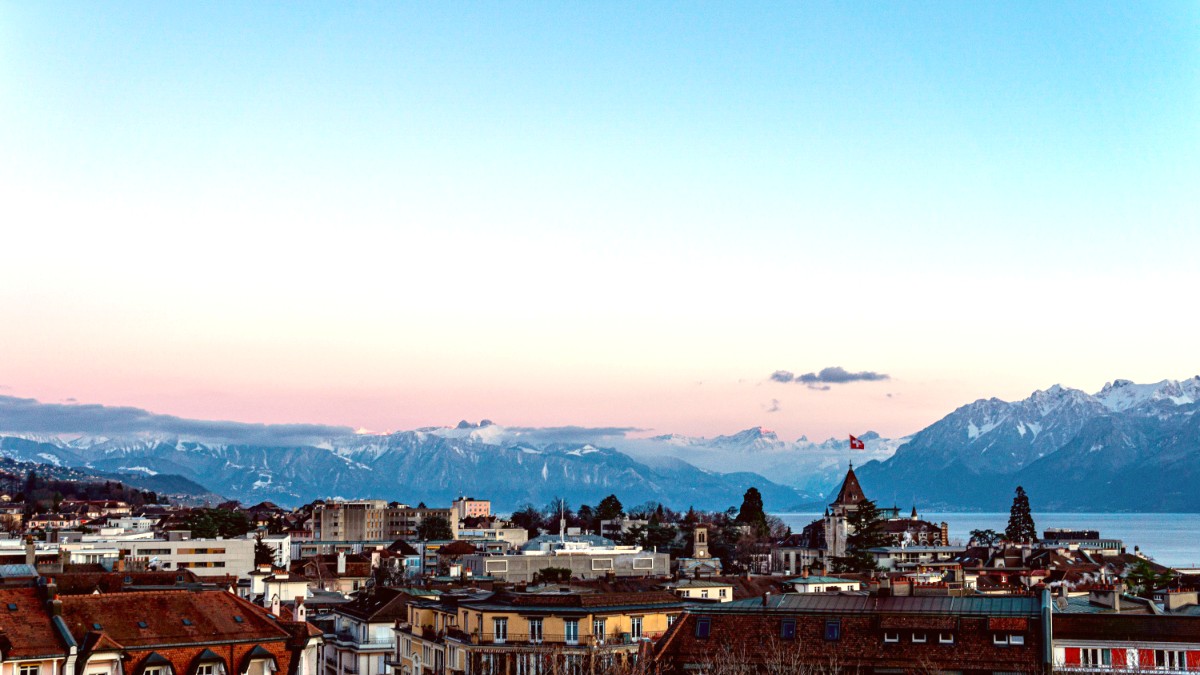
Lake Geneva Region, Switzerland
Major mobile providers in Switzerland are Swisscom, Sunrise, and Salt. Purchase local SIM cards at airports, train stations, or dedicated mobile phone shops. Your passport is needed for registration.
For convenience, consider using an eSIM. Many providers display digital eSIMs that you activate on your compatible smartphone without a physical SIM card. Explore eSIMs with Airalo.
Wi-Fi is widely available and often free in hotels, most cafes, restaurants, and public areas. Free Wi-Fi exists at major transport hubs like Lausanne Gare CFF and in the Flon district.
Post offices are efficient and reliable for sending postcards or parcels. They are marked by the yellow "Die Post" (German) or "La Poste" (French) sign.
Switzerland displays excellent public transport accessibility. If specific needs apply, contact SBB or TL in advance.
Generally, Monday to Friday: 9 AM - 6:30 PM (or 7 PM). Thursdays often extend until 8 PM or 9 PM. Saturdays: 9 AM - 5 PM. Sundays: Most shops closed, except in train stations and airports.
Lunch service typically runs from 12 PM to 2 PM. Dinner service starts around 6:30 PM and continues until 10 PM or later. Many restaurants close between lunch and dinner service.
Typically open Tuesday to Sunday from 10 AM to 5 PM or 6 PM. Many close on Mondays. Always check individual websites for current opening hours.
Banks usually operate Monday to Friday from 9 AM to 5 PM.
Switzerland observes several public holidays. On these days, most shops, banks, and public services close.
For a smooth trip, always verify opening times in advance, especially for smaller attractions or during low season.
Swiss culture values order, politeness, and discretion.
A handshake is common for introductions. Use "Bonjour" (good day) during the day and "Bonsoir" (good evening) after dark. "Au revoir" works as a standard farewell.
Dress is generally smart casual. For visits to churches or cathedrals, respectful attire (shoulders and knees covered) is appreciated.
Punctuality is important for restaurant reservations. Service charges are included in prices. Tipping is not mandatory, but rounding up or leaving a small amount for good service is common.
Generally, photograph in public spaces. Be respectful of people's privacy; ask for permission before taking close-up photos of individuals. Inside museums, look for "no flash" or "no photography" signs.
Switzerland's public transport exhibits excellent accessibility. If specific needs are present, contact SBB or TL in advance.
Switzerland's commitment to accessibility benefits travelers with mobility challenges.
Major train stations, airports, and newer public transport vehicles display accessible design. Ramps, elevators, and wide entrances are common.
The M2 Metro line in Lausanne is modern and fully accessible, with elevators at all stations, making city navigation simpler for those with mobility aids. Many city buses are low-floor.
Guide dogs are generally permitted in public places and on public transport. Some public transport services and major attractions may display audio guides or tactile maps for visitors with visual impairments.
SBB (Swiss Federal Railways) displays detailed accessibility information online. Consult the Lausanne Tourisme office or their website for specific accessibility details.
Switzerland’s public transport displays high accessibility. For specific needs, contact SBB or TL in advance. Older parts like La Cité, with steep, cobblestone streets, can present challenges.